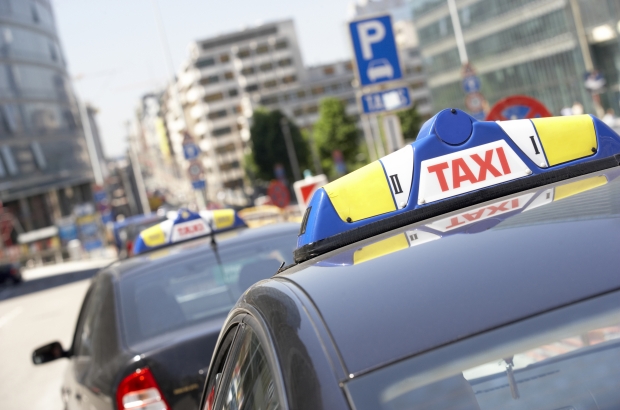- Daily & Weekly newsletters
- Buy & download The Bulletin
- Comment on our articles
To Uber or not to Uber
Belgium is making way to allow the controversial renegade rideshare service Uber to operate legally in Brussels as part of plans announced by Brussels mobility minister Pascal Smet to reform the taxi industry in the capitol.
Uber, which lets users find rides via their smartphones, was made illegal in Brussels in spring 2014, citing unfair competition with registered taxi companies. However, despite threats of hefty fines amounting to €10,000 per infringement, the demand for the cab-on-call service has remained high. According to Politico, even while illegal, Uber holds about one third of the market share for taxi services in Brussels, with one Uber driver for every two registered taxis.
By early 2016, the service is expected to be legalised. For many Brussels residents, this is a welcome change. Uber rides typically cost 20 to 30 per cent less than a taxi, are fast and can be ordered from your smartphone. However, some say this comes at a steep price, including reduced protection for both drivers and riders. Before you jump on board, read this rundown of the pros and cons of Ubering around the city.
Rule breakers
The main criticism against Uber is that it poses unfair competition for registered taxi drivers. In deciding to ban Uber last year, mobility minister Smet cited Uber’s secretiveness and refusal to provide evidence that it meets fiscal and employment regulations.
Becoming an Uber driver requires little overhead: drivers don’t need commercial taxi licenses, which in some cases can cost over 100.000 euros. All they need is to own their own car (that meets Uber criteria) and to pass a background check.
Uber does not call itself a taxi service, but a rideshare platform. Its service is to connect riders with drivers using a smartphone app, and for the convenience takes 20 per cent of the driver’s fee. Drivers operate independently, paying for the use the app, and are not Uber employees.
One worry of the government is that drivers are not compelled to report their Uber earnings as income, and therefore skirt around paying taxes. Also, a person could conceivably be receiving unemployment benefits and earning money on Uber. Both scenarios would be considered fraud.
Meanwhile, traditional taxi companies pay VAT and drivers must report their incomes and file tax returns. Taxi drivers and companies complain that Uber edges them out of the market by offering cheaper services via a deregulated system that reduces safeguards on working conditions and competency, ultimately endangering both drivers and riders.
The new world of business
However, many think Uber is less nefarious than the Brussels government – and many other city governments – and taxi unions around the world have claimed. They argue that the service simply represents a new way of doing business in the digital age: business transactions run directly by the people for the people, with little corporate middleman.
Neelie Kroes, Vice President of the European Commission, made her disagreement with the ban known when it was passed last April, calling it a move about “protecting a taxi cartel”.
Smet’s recent proposal for taxi reform in 2016 seeks to strike a balance between ensuring that Uber drivers are obliged to report earnings and meet safety standards in accordance with the law and to adjust to this new consumer-to-consumer way of doing business that the mobile Internet allows. However, the plan intends to reserve privilege of using taxi lanes for registered taxis.


















Comments
Taxi services in Brussels are appaling. Very few accept credit cards, they regularly smoke in their cars, refuse to take you if your journey is under 10€, don't hesitate to drop you off in the middle of a journey if their shift is coming to an end, drive dangerously when in a hurry, often show up late when pre-booked.
They need to take along hard look at why people are jumping at the chance to use alternative services.
It is very dangerous to travel with "ordinary" Taxis in Brussles. And like ALAMRA:s comment, it is dirty, the smoke in thir cars, drive way to fast, don take creditcard (hey!! were in EU town!!) I will must allso add that when the Uber drivers, that is mostly students and others who is trying to earn some extra €, asks mee to sit in the front seat becasuse they afraid and threatened and physically beaten by "the good and nice ordinary" Taxi drivers, makes me even more angry.
From this day I will olny use UBER when I´m traveling in Brussles. There are +600 cars avalible driving around city, so for you who have not tried I will use Richard Bransons words. JUST DO IT! Download app at www.uber.com
Here! Here! Uber uber alles!